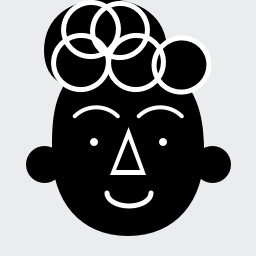
Hoping to study in the US but worried about cost? Acing the SAT doesn't have to add to your money woes
It turns out spending time doing free tutorials increases your score

Is there a price that a worried parent wouldn’t pay to help a child do well on US college admissions tests? The good news is that test preparation doesn’t have to be expensive anymore.
The multimillion-dollar coaching industry is facing competition from free or low-cost alternatives in what their founders hope will make the process of applying to university fairer. Such innovations are also raising questions about the relevance and the fairness of relying on standardised tests.
The online education platform Khan Academy has partnered with the College Board to provide free coaching for the SAT test. Top commercial programs cost around US$1,000.
According to a study released on Monday by the College Board, 20 hours of free online learning at Khan Academy led to an average gain of 55 points on the 1,600-point test scale compared to students who didn’t use the programme. The College Board, a non-profit organisation, owns the SAT.
“We need to start to level the playing field,” Khan Academy founder Salman Khan said. “It is never OK that some students have access to some tools that other students do not.”
The study, shared with AP ahead of publication, compared 250,000 students from the graduating class of 2017 who took the practice PSAT test, linked their Khan Academy and College Board accounts, and participated in the free prep, to some 840,000 students in the same class who did not spend any observable time on Khan Academy test prep or didn’t link the two accounts.
While students in the second group had an average gain of 60 points from their practice test to the SAT, students in the first group had an average gain of 115 points, or an additional gain of 55 points.
There are no rigorous, recent studies of test gains made by students who took test prep courses outside the College Board programme.
But a study of commercial test prep courses released by the National Association for College Admission Counseling in 2009 reported an average gain of some 30 points. That study analysed prep programmes for the previous version of the SAT. The new streamlined exam launched last year removes penalties for guessing, eliminates arcane vocabulary, and focuses more on what students are supposed to learn in high school.
Derek Briggs, an education professor at Colorado University, Boulder, who authored the NACAC report, welcomed the Khan Academy results with cautious optimism. “That’s a real step in the right direction,” Briggs said. “It’s certainly larger than what I would have predicted.”
Raising some questions about the methodology, Briggs said the gains could be attributed to the students’ motivation rather than the learning tool. Also, it is unknown whether students in the study group used additional resources, such as commercial courses or private tutoring.
But Khan said the fact that gains were consistent across all demographic groups, including different income, race and gender, showed that tutorials were a significant factor.
Diana Antunez, 17, a senior at Oak Ridge High School in Orlando, Florida, improved 130 points between two SAT tests. She said the platform analysed her initial results and gave her problems in areas where she had made mistakes.
“It’s like I had a teacher right there with me,” Anuntez said.
Other free SAT tutorials can be found on Number2.com, FreeTestPrep.com and other websites.
Large commercial test preparation companies such as Kaplan and the Princeton Review, which offer personalised live instruction for US$800 to US$1,100, say they are not threatened by free alternatives because many students need additional motivation. The US test prep industry was worth US$328 million in 2016, according to IBISWorld, an industry research company.
“Khan Academy is the free fitness app. What we do is really provide motivation and structure and support,” said Lee Weiss, vice-president of college admissions at Kaplan.
Kaplan and Princeton Review don’t disclose the average gains made, but guarantee higher scores to individual students if they complete all the assignments.
The partnership with Khan marked a major turnaround for the College Board, which had long insisted that the SAT is designed in such a way that coaching is of little use. A 1998 study of prep courses conducted by the organisation found that coaching is unlikely to bring substantial gains. Critics say remodelling the test and partnership with Khan Academy may be an attempt to compete with the rival test, the ACT.
Some are questioning the very premise of such tests. The watchdog FairTest, which campaigns to make standardised testing optional, has compiled a list of more than 950 colleges and universities in the United States that no longer require test scores for admission. Many are small institutions or have a specialised focus; some, like George Washington University, are big schools.
Jonathan Supovitz, professor at the University of Pennsylvania Graduate School of Education, says some kind of a standardised testing is still necessary to evaluate students, given the differences in the quality of high school education. He added that the SAT is only good at predicting grades during a student’s freshman year, but not their overall college readiness.
That is why college admissions officers must pay equal attention to a student’s grades as well as letters of recommendation and extra-curricular activities, said David Burge, the incoming president of NACAC.
“There are different types of students and you need to take a truly holistic approach,” Burge said.
